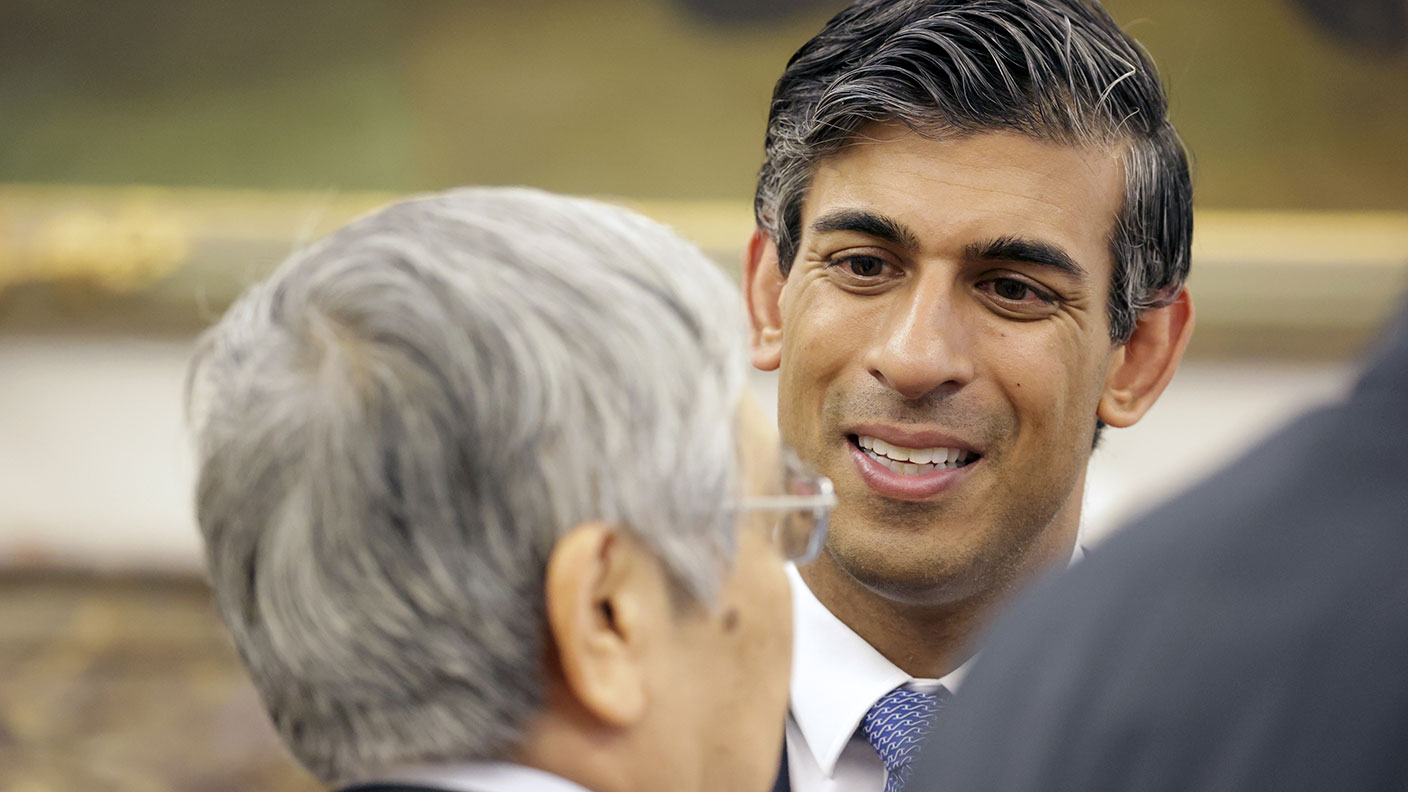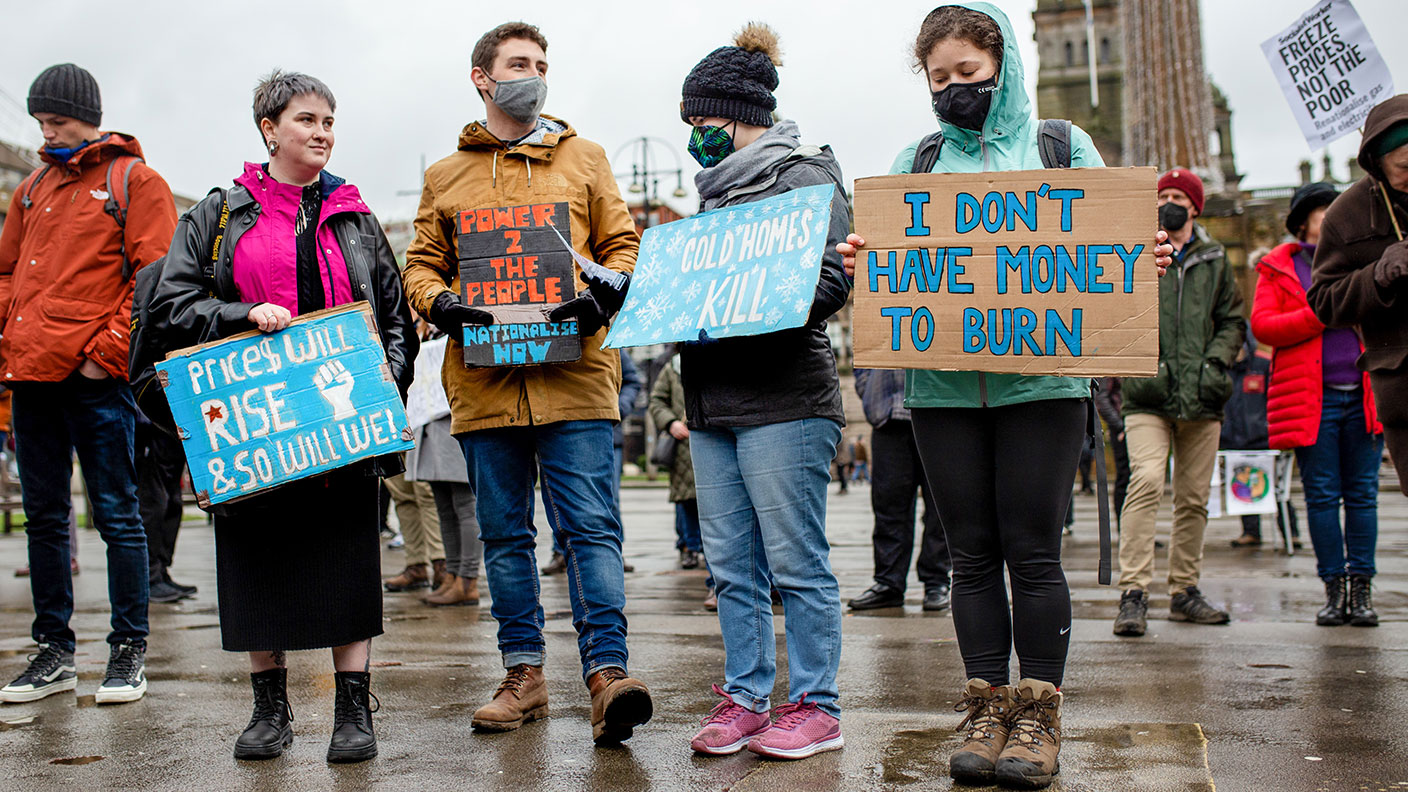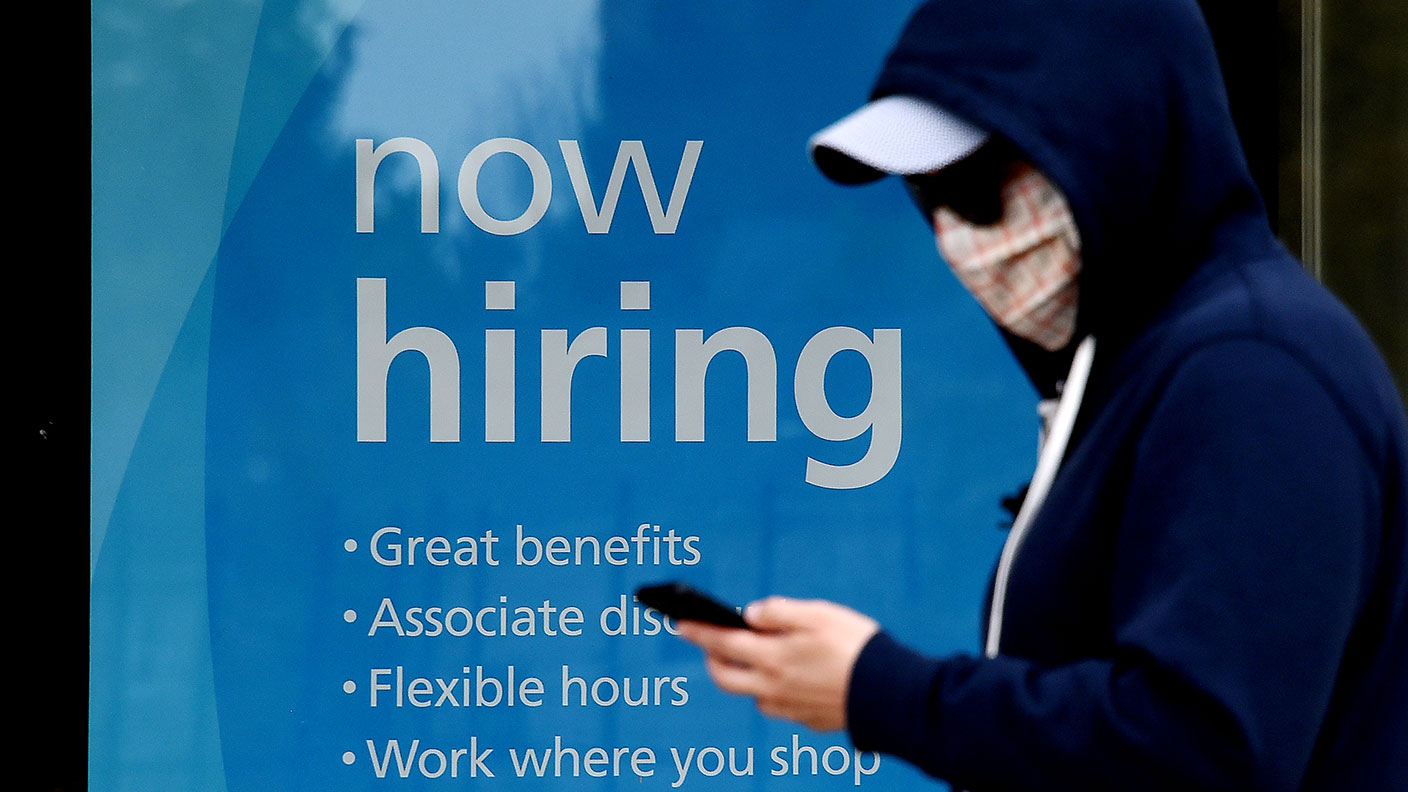The US dollar is still the most important price in the world
The US dollar has been strong for years now, keeping global monetary policy tight and making life hard for emerging markets in particular. John Stepek asks if that’s likely to change.

Get the latest financial news, insights and expert analysis from our award-winning MoneyWeek team, to help you understand what really matters when it comes to your finances.
You are now subscribed
Your newsletter sign-up was successful
Want to add more newsletters?

Twice daily
MoneyWeek
Get the latest financial news, insights and expert analysis from our award-winning MoneyWeek team, to help you understand what really matters when it comes to your finances.

Four times a week
Look After My Bills
Sign up to our free money-saving newsletter, filled with the latest news and expert advice to help you find the best tips and deals for managing your bills. Start saving today!

Just before I get started this morning, I wanted to draw your attention to a Bloomberg networking event some of you might be interested in, particularly the entrepreneurs among you it's on 12 November in London, and you can get all the details here.
The big news this week is that the Federal Reserve America's central bank is making yet another interest rate decision.
We get the big news on Wednesday.
MoneyWeek
Subscribe to MoneyWeek today and get your first six magazine issues absolutely FREE

Sign up to Money Morning
Don't miss the latest investment and personal finances news, market analysis, plus money-saving tips with our free twice-daily newsletter
Don't miss the latest investment and personal finances news, market analysis, plus money-saving tips with our free twice-daily newsletter
The Fed is all but guaranteed to cut interest rates by a quarter point.
But what happens then?
Central banks are still some of the most important players in markets
The conventional view of central banks in these jaded times is that they are "out of ammo". They have reached the end of the line. They are a spent force. They're a busted flush.
You can choose your own metaphor the point is, they're no longer seen as the big movers and shakers they once were.
Trouble is, this fatalistic view doesn't translate into reality. Mario Draghi and now Christine Lagarde are most definitely the most important policymakers in the eurozone. They are still the key defence buttressing the ongoing existence of the euro.
In the UK, the Bank of England isn't doing much because Brexit is still going on. But wait until Brexit is done and dusted. Attention will immediately turn to asking where interest rates are heading next, which in turn will dictate the direction of the pound.
In the US, trade wars and a lack of enthusiasm for Jerome Powell's leadership have left the Federal Reserve looking rather less prestigious than under Janet Yellen and Ben Bernanke.
(The latter two were lucky enough to work with presidents who were more than happy to defer the toughest decisions on economic policy to the central bank.)
But even then, investors are deluding themselves if they imagine that the Fed's rate decision will not be the most widely-watched event in markets this week. Closely followed by the US employment data on Friday, which in turn has implications for Fed policy.
So what's likely to happen and what kind of effect might it have on the market?
What could the Fed's decision mean for the US dollar?
Right now, the Fed's key interest rate the Federal Funds rate is set in a range from 1.75% to 2%. The Fed is expected to cut this by a quarter of a percentage point, to between 1.5% and 1.75%. This would be the third cut in a row.
The question is: will it be the last?
Fed boss Jerome Powell has been fighting something of a losing battle to try to appear relatively optimistic on the economy.
In the face of a market that is desperate for more stimulus (it's hard not to get addicted to this stuff after ten years of constant infusions), Powell has given the impression that every cut has been dragged out of him.
He has characterised the recent run of cuts as a "mid-cycle adjustment." He's not cutting rates because the US is heading for recession, oh no. This is just for "insurance". This is just to continue smoothing the progress of the economy along its way.
To be fair, Powell has a point. The US is hardly in a downturn. Growth is OK. Employment is strong. Inflation is fine.
And it doesn't help Powell that, whatever he does, Donald Trump will cheerfully cry out for more, which then gives Powell the political headache of trying to avoid looking as though he's simply caving into the president.
In any case, even though he's spent most of this year cutting rates and loosening monetary policy, the market still views him as being a bit stingy with the stimulus.
The most obvious barometer of this is the US dollar. The US currency has remained strong for several years now. That typically makes life difficult for markets at large to put it very simply, everyone needs dollars, so if dollars are expensive, then global monetary policy is tight.
In turn, that makes life hard for emerging markets in particular.
Could that change? And if it changed, might it give another burst of impetus to the bull market?
Will Denyer of Gavekal Research points out that it might. Because a number of things have changed recently.
For a start, the Fed is now expanding its balance sheet again. You can call it quantitative easing (QE), or simply a technicality, but if the Fed is printing more than other central banks which Denyer says is the case, at least for the next few months then that should weaken the dollar, all else being equal.
That's probably the most important point. But if you then look at other factors a bit more political stability in both sterling and the euro, assuming Brexit gets sorted in the next few months; plus concerns about the potential for a relatively left-wing government to take over in the US next year and suddenly, the odds of a weaker US dollar look quite high.
Given all this, the question then becomes will Powell act to give the dollar a little shove, perhaps by being a little more open to cutting rates again than markets expect? Or will he view this as a cushion that allows him to come over as a little more hawkish than expected?
One way or another, my gut feeling is that we're going to see a weaker dollar before the end of the year, and that this will be one of the most important factors in shaping views of the market and inflation over the next year or so.
A persistently weaker dollar could be just what the market needs to finally shift itself out of its deflationary psychological rut. That would set us up for a different set of problems in the medium term but we can worry about that further down the line. (And it'll also be one of the topics in the MoneyWeek Wealth Summit in a few weeks' time get your ticket here now).
Get the latest financial news, insights and expert analysis from our award-winning MoneyWeek team, to help you understand what really matters when it comes to your finances.

-
 Barings Emerging Europe trust bounces back from Russia woes
Barings Emerging Europe trust bounces back from Russia woesBarings Emerging Europe trust has added the Middle East and Africa to its mandate, delivering a strong recovery, says Max King
-
 How a dovish Federal Reserve could affect you
How a dovish Federal Reserve could affect youTrump’s pick for the US Federal Reserve is not so much of a yes-man as his rival, but interest rates will still come down quickly, says Cris Sholto Heaton
-
 Is the US in recession and does it matter?
Is the US in recession and does it matter?Analysis There's a heated debate over whether the US is in recession or not. But why does it matter? John Stepek explains
-
 Has the chancellor done enough to save the UK from recession?
Has the chancellor done enough to save the UK from recession?Analysis UK Chancellor Rishi Sunak announced a new package last week to ease the cost of living crisis. John Stepek explains whether the risk of a UK recession still remains.
-
 Is the UK too open to overseas takeovers?
Is the UK too open to overseas takeovers?Analysis Data shows that the UK is more open to overseas takeovers than other major markets. John Stepek asks: should investors care?
-
 How to manage your money as inflation just keeps rising
How to manage your money as inflation just keeps risingAnalysis Uk inflation is at a 30-year high – and it won't be falling any time soon. So what can you do? John Stepek explains how to manage your money to combat rising prices.
-
 Inflation is going to stay even higher for even longer
Inflation is going to stay even higher for even longerAnalysis Commodity prices – everything from energy to food – are going through the roof. And that’s not likely to end any time soon, says John Stepek. Here's what that means for how you invest.
-
 Inflation is incredibly inconvenient, as we’re all about to learn
Inflation is incredibly inconvenient, as we’re all about to learnAnalysis Inflation doesn't just eat into your wealth, it eats into your time – and can be devastating for those on the lowest incomes. And it's not going away any time soon, says John Stepek. Here's how to invest.
-
 The cost of living crisis is global – US inflation just hit another 40-year high
The cost of living crisis is global – US inflation just hit another 40-year highAnalysis With US inflation running at 7.5%, it’s clear that the cost of living crisis is not confined to the UK. John Stepek looks at the likely reaction from governments and central banks, and what it means for you.
-
 The strong US jobs report is good news for the economy, but not so much for markets
The strong US jobs report is good news for the economy, but not so much for marketsAnalysis January's US jobs report came in much stronger than anyone was expecting, with 467,000 new jobs added to the economy. But things might not be quite as rosy as they seem, says John Stepek. Here's why.